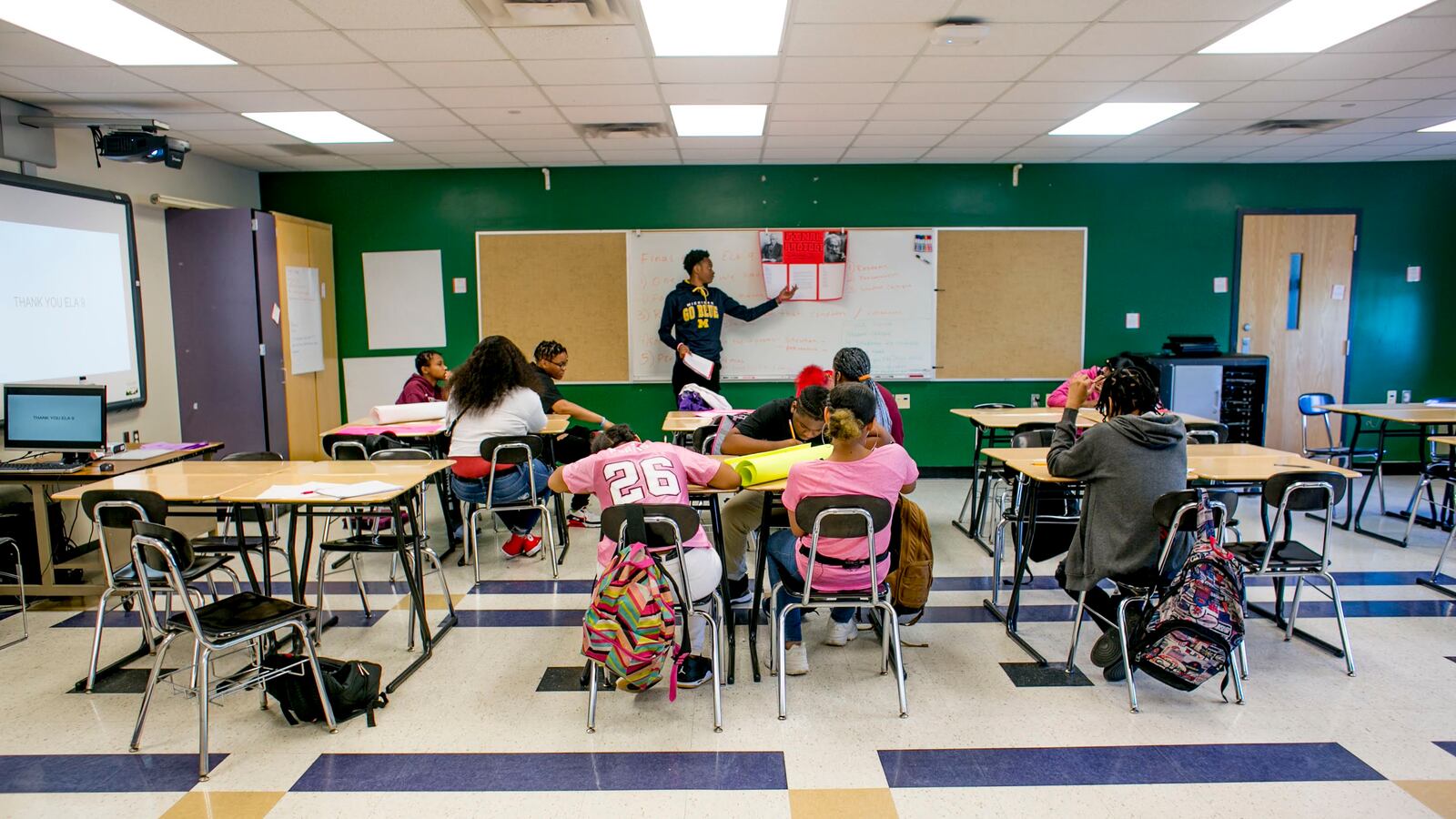The number of teachers in Michigan working without a license, education training, or even a college degree has climbed tenfold in the last five years, according to a new analysis by Bridge Magazine.
That shocking finding is the centerpiece of a project about Michigan schools’ growing reliance on long-term substitute teachers that Bridge launched on Wednesday. The magazine, which covers state policy, examined data from across Michigan and concluded that what was supposed to be a temporary strategy to relieve a teacher shortage has become a permanent fixture in many places, leaving tens of thousands of needy students without educators trained to help them.
Take a look at the entire project, including a database of substitute rates by district, here.
One interesting finding: Unlike with many education challenges, Detroit appears not to be bearing the brunt of the problem. In Detroit’s main school district last year, the analysis found, 2.6 percent of teachers were long-term substitutes, putting the district on par with Grand Rapids and in far better shape than about a third of districts and charter schools across the state.
In contrast, Flint and Dearborn, two other large districts serving mostly low-income students, have long-term substitute rates more than twice as high as Detroit’s, the magazine found. (Still, some individual Detroit district and charter schools are reliant on long-term substitutes.)
Bridge will be taking a deeper look at what Detroit has done to fill teaching positions with certified educators on Thursday.
We’ve covered some of those strategies already: The district has widened the door to teachers pursuing alternative certification, meaning that they did not undergo traditional teacher training but are enrolled in programs that allow them to become fully certified. Those teachers, who include Teach For America and Teachers of Tomorrow trainees, typically end up in classrooms that might otherwise begin in the school year with a long-term substitute in place.
The district has also begun paying new teachers to undergo a summer orientation, in hopes of retaining them longer and reducing the number of positions that need to be filled each year.
And the Detroit district has changed compensation in other ways in an effort to hold onto veteran teachers and boost the chances of filling positions with permanent hires. In the last year, it has raised overall teacher pay, begun giving experienced teachers credit on the district’s salary scale for time worked elsewhere, and started offering $3,000 hiring bonuses for teachers who choose to work in “hard-to-staff” schools.
“There’s a new energy, sense of urgency, and responsiveness” in hiring, Vitti told Chalkbeat last month. “We’ve seen that … in our customer service feedback. We reach out to teachers more effectively.”
But Bridge Magazine’s reporting makes the case that the district’s recent improvements have simply shifted the reliance of long-term substitutes onto local charter schools. (Competition for teachers between the two sectors is nothing new: Some local charter schools have also offered hiring bonuses, and some teachers left the district for charters during the district’s years of emergency management.)
“I would never agree that charters aren’t competitive, but it’s widely known that [Detroit Public Schools] offers bonuses and increased pay,” Dan Quisenberry, executive director of the Michigan Association of Public School Academies, told the magazine. “And if you’re looking at a brand-new teacher, a relatively young teacher in their profession, and they’re willing to teach in an urban environment, they’re likely to choose a district that’s throwing cash like that.”

